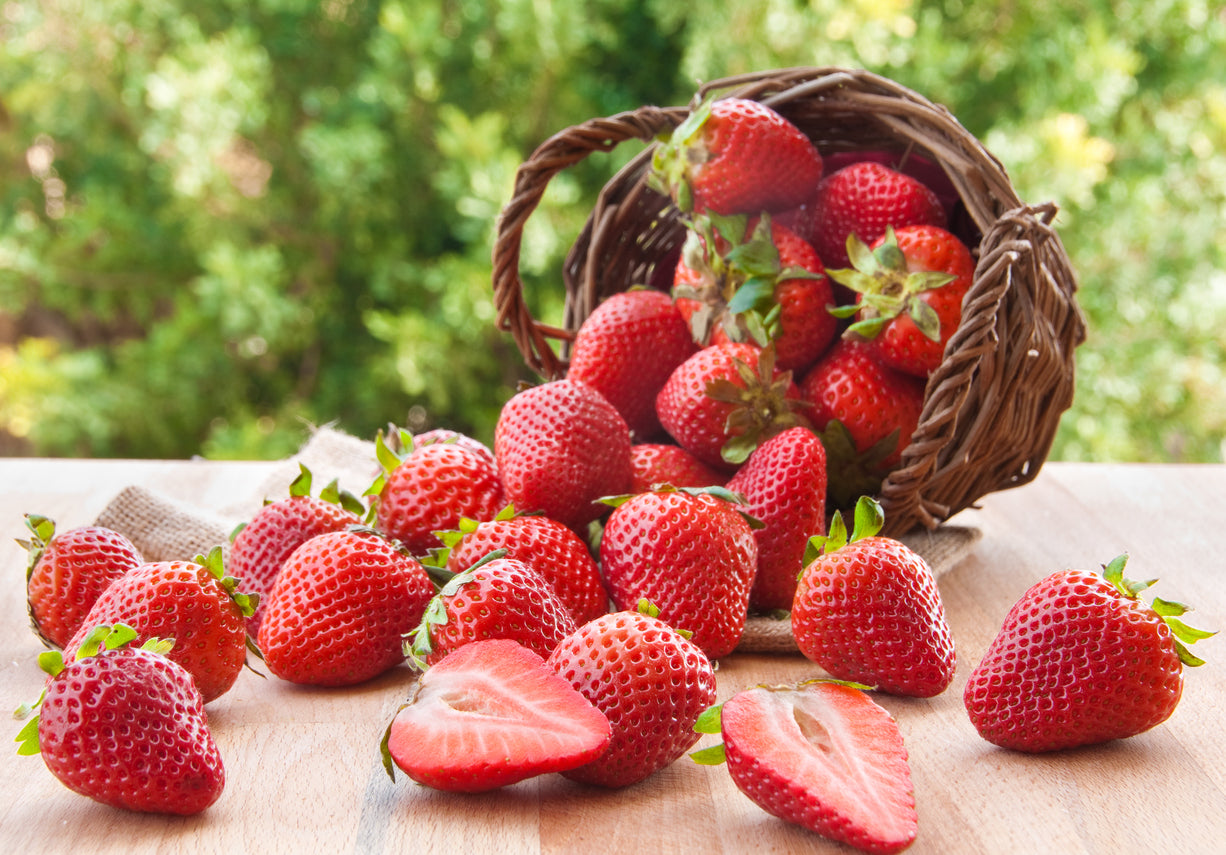Discover how heart-healthy strawberries also support cognition and memory

Natural health experts, knowledgeable nutritionists and conventionally trained doctors alike emphasize the importance of “eating the rainbow” – consuming colorful foods rich in natural plant pigments – to optimize health. With their brilliant ruby-red color, appealing taste and full cargo of important micronutrients, strawberries are a great example of a desirable “rainbow” food.
Strawberries are being taken very seriously by researchers for their high content of flavonoids – bioactive compounds which scientist think may promote brain health and clear thinking. Better yet, some experts say that constituents in strawberries appear to work on a molecular level to potentially prevent or delay neurodegenerative conditions such as Alzheimer’s disease. Let’s take a closer look at some of the important health benefits of strawberries.
Fisetin in strawberries may have neuroprotective effects
The World Health Organization predicts that the proportion of people over age 60 will increase from 11 percent to 22 percent by the year 2050 - leading researchers to seek out natural, safe and effective interventions for the rising rates of neurodegenerative diseases that are bound to follow. And, according to several recent reviews, strawberries show a lot of promise. While strawberries are not a “magic bullet” against Alzheimer’s disease and other neurodegenerative conditions, they do show potential for supporting brain health and combating some of the factors that contribute to these diseases.
Recent analysis has revealed that strawberries are packed with fisetin, an antioxidant, anti-inflammatory flavonoid that has been shown in studies to help enhance learning and memory, while protecting brain cells from oxidative stress. (Oxidative stress - which can be triggered by poor nutrition, smoking, environmental pollution, ultraviolet radiation, medications and infections - can lead to the formation of amyloid-beta deposits linked with Alzheimer’s disease).
And, the Alzheimer’s Research and Prevention Foundation notes that animal studies showed that fisetin helped to prevent progressive memory loss and learning impairment. While more human trials are needed, researchers are hoping that this versatile flavonoid can slow and even reverse memory loss. If you are concerned about cognitive decline, it’s probably not a bad idea to eat healthy amounts of strawberries.
Anthocyanins in strawberries are a gift to heart health
Anthocyanins are flavonoids in the orange, red, violet and blue spectrum of colors (think: indigo blueberries, purple grapes, and scarlet raspberries) - and strawberries have their share of them. In fact, anthocyanins in strawberries are getting a lot of scientific “cred” when it comes to their ability to promote heart health. It turns out that they boost antioxidant status while ramping up production of the beneficial nitric oxide that supports healthy circulation. And, they reduce the “stickiness” of blood platelets, making blood less likely to form into dangerous clots.
In a review published in Frontiers in Pharmacology, researchers cited recent human studies in which anthocyanins in berries lowered various risk factors for heart disease. Among other benefits, they increased healthy HDL cholesterol, reduced harmful LDL cholesterol and fats in the blood, lowered blood pressure and promoted arterial health. And, one influential study showed that anthocyanins decreased the incidence of coronary heart disease in women and significantly lowered the risk of heart attacks. Who knew these ordinary berries could have such a striking effect on cardiovascular health?
Low-calorie strawberries contain essential vitamins, minerals and dietary fiber
Strawberries also manage to cram a lot of micronutrients into a relatively small serving. They are an excellent source of immune system-boosting antioxidant vitamin C, with one cup of berries containing over 100 percent of the recommended dietary allowance for adults.
They also offer up healthy amounts of manganese, folate and blood pressure-lowering potassium - along with ellagic acid, which helps to protect the body’s stores of skin-nourishing collagen. High in beneficial dietary fiber, strawberries also help support good digestion and healthy weight. Yet, a 3.5-ounce serving of fresh strawberries contains only a modest 32 calories – quite the nutritional bargain.
With stellar taste and nutrition, strawberries are a win/win
The sweet taste of ripe strawberries is so satisfying that they need no embellishment or special preparation. Of course, in addition to snacking on strawberries out of hand, you can use them to top oatmeal, yogurt, cereals and ice cream. Or, use strawberries to add a pop of sweetness and color to mixed green salads, or to enliven tropical fruit cocktails. Strawberries can also take a starring role in your favorite smoothie.
By the way, the Alzheimer’s Research and Prevention Foundation now recommends a whopping nine servings of colorful fruits and vegetables every day in order to protect memory. (For a change of pace from strawberries, you can enjoy blueberries, mangoes, apples, persimmons, kiwi fruit, onions, cucumbers and grapes as good sources of fisetin). As for anthocyanins, they can also be found in blueberries, raspberries, mulberries, grapes and blue and purple corn.
Pro tip: It’s best not to boil fisetin-rich foods. If you must cook them, stick to steaming or slow cooking to avoid the loss of valuable nutrients and enzymes.
To avoid exposure to food-borne pathogens, pesticides and synthetic chemicals, make sure you wash strawberries thoroughly before eating them. And, try to opt for organic strawberries - which are less likely to contain harmful pesticides - whenever possible or practical.
With benefits to both heart health and cognitive function, strawberries are a definite win/win, and a spectacular addition to your healthy diet.
Sources for this article include:






